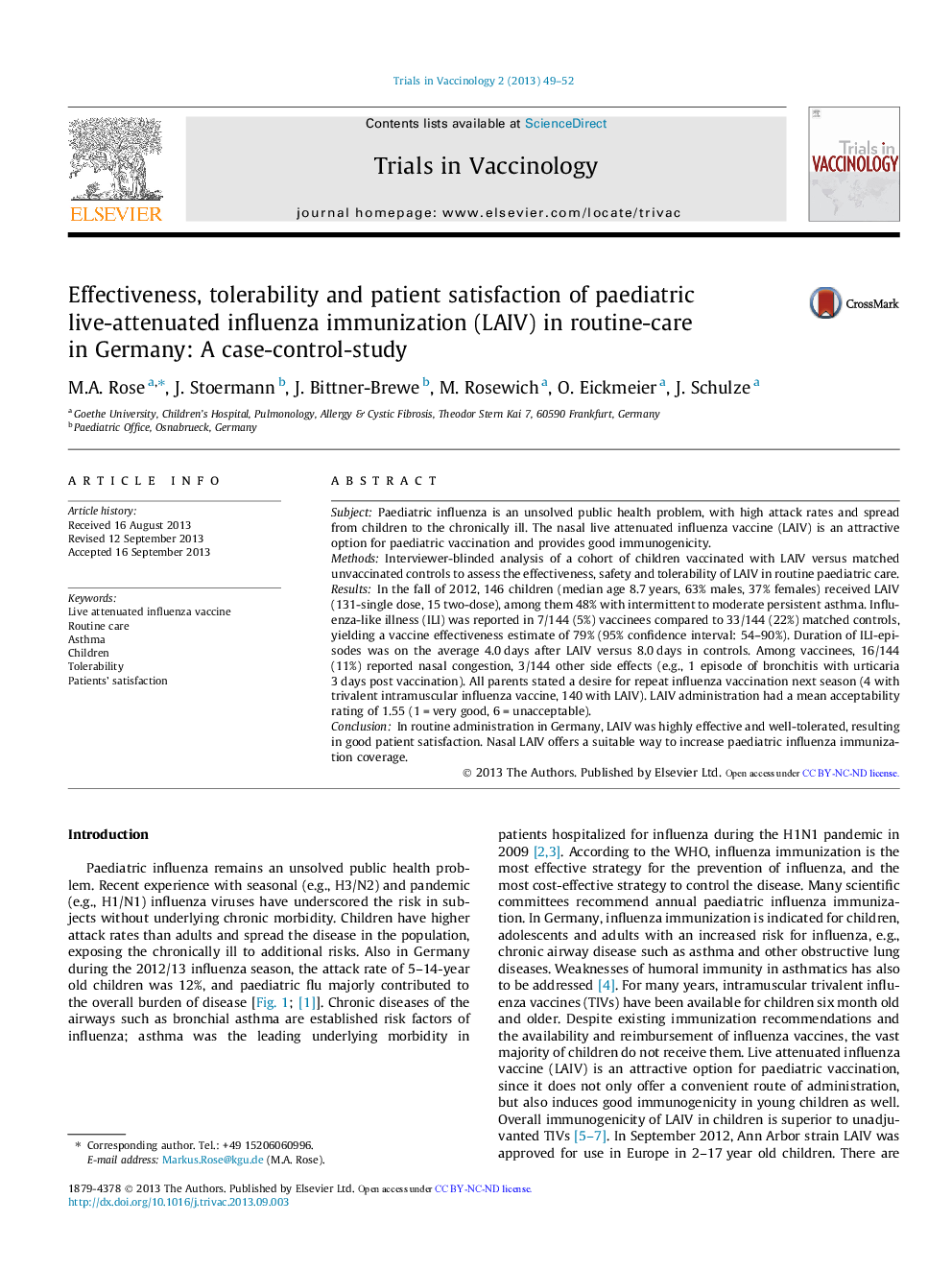| Article ID | Journal | Published Year | Pages | File Type |
|---|---|---|---|---|
| 2474359 | Trials in Vaccinology | 2013 | 4 Pages |
SubjectPaediatric influenza is an unsolved public health problem, with high attack rates and spread from children to the chronically ill. The nasal live attenuated influenza vaccine (LAIV) is an attractive option for paediatric vaccination and provides good immunogenicity.MethodsInterviewer-blinded analysis of a cohort of children vaccinated with LAIV versus matched unvaccinated controls to assess the effectiveness, safety and tolerability of LAIV in routine paediatric care.ResultsIn the fall of 2012, 146 children (median age 8.7 years, 63% males, 37% females) received LAIV (131-single dose, 15 two-dose), among them 48% with intermittent to moderate persistent asthma. Influenza-like illness (ILI) was reported in 7/144 (5%) vaccinees compared to 33/144 (22%) matched controls, yielding a vaccine effectiveness estimate of 79% (95% confidence interval: 54–90%). Duration of ILI-episodes was on the average 4.0 days after LAIV versus 8.0 days in controls. Among vaccinees, 16/144 (11%) reported nasal congestion, 3/144 other side effects (e.g., 1 episode of bronchitis with urticaria 3 days post vaccination). All parents stated a desire for repeat influenza vaccination next season (4 with trivalent intramuscular influenza vaccine, 140 with LAIV). LAIV administration had a mean acceptability rating of 1.55 (1 = very good, 6 = unacceptable).ConclusionIn routine administration in Germany, LAIV was highly effective and well-tolerated, resulting in good patient satisfaction. Nasal LAIV offers a suitable way to increase paediatric influenza immunization coverage.
